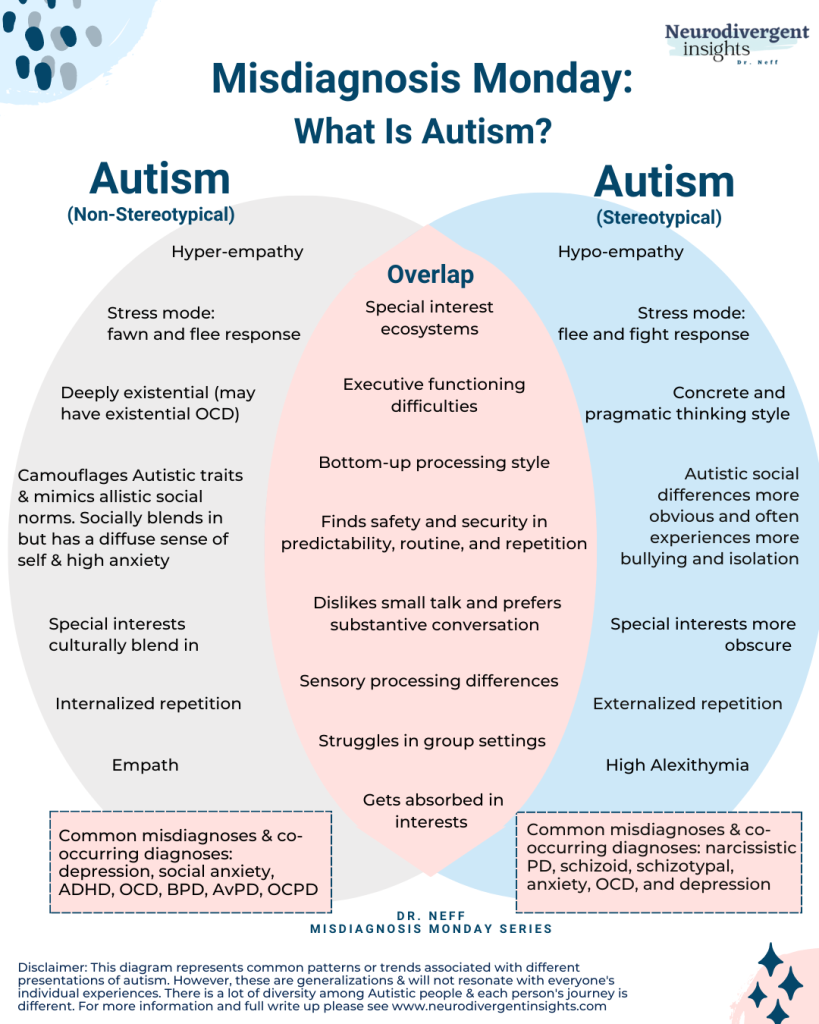Diagnosing autism in adults in Australia poses distinctive difficulties and criteria that reveal the growing knowledge of the variety and the diverse needs of individuals. Unlike youth diagnoses that always rely on early developing markers, adult autism analysis requires realizing refined behavioral designs, connection differences, and social issues that could have been camouflaged over the years. The method needs a thorough and culturally painful and sensitive approach that acknowledges the diverse skills and activities of an individual seeking assessment.
Australia’s diagnostic construction for adult autism is influenced by internationally recognized requirements like the Diagnostic and Mathematical Manual of Intellectual Disorders (DSM-5) and the Global Classification of Diseases (ICD-10). Nevertheless, professionals completing assessments in Australia are encouraged to adopt a person-centered, strengths-based perception that considers an individual’s distinctive neurodiversity and cultural context.
Accessibility to diagnostic services is a crucial facet of the Australian landscape, and attempts are now being produced to deal with disparities in usage of assessments across regions. Cities typically have more assets and particular professionals, while rural and remote parts may experience issues in providing regular and extensive diagnostic services. Raising recognition and establishing diagnostic capacity in underserved places stay key items for increasing accessibility.
The diagnostic method usually requires a multidisciplinary staff, including clinical psychologists, psychiatrists, presentation pathologists, and occupational therapists. This collaborative strategy assures a holistic assessment that views cognitive capabilities, language proficiency, physical sensitivities, and intellectual health factors. Moreover, professionals are significantly knowing the significance of involving persons in the diagnostic process, valuing their self-reported activities and insights.
National competence represents an essential role in the diagnostic trip for people seeking evaluation in Australia. Indigenous Australians, culturally and linguistically diverse areas, and individuals from different skills need designed techniques that admit the influence of culture on appearance and perception of autism. Experts are encouraged to participate in ongoing ethnic competency education to make sure a nuanced comprehension of diverse perspectives.
Late-diagnosed people might experience unique issues while they navigate the complex feelings and changes that come with understanding their neurodivergent identity. The diagnostic journey frequently runs beyond the review itself, concerning post-diagnostic help, including counseling, psychoeducation, and the growth of coping techniques tailored to the individual’s strengths and challenges.
The recognition of gender diversity within the autism spectrum is still another changing part of analysis in Australia. Traditional diagnostic conditions, which were traditionally predicated on mainly man presentations, might not catch the varied expressions of autism in females and people who have varied sexuality identities. Initiatives are underway to improve diagnostic resources and increase understanding of the initial experiences of autistic persons throughout the sexuality spectrum.
Research and advocacy perform integral tasks in surrounding the continuing future of person autism examination in Australia. Constant studies subscribe to a further autism in women of the prevalence, experiences, and needs of adults on the spectrum. Advocacy agencies, equally national and regional, work towards destigmatizing autism, increasing consciousness, and influencing plan changes that prioritize the addition and well-being of autistic individuals in Australian society.

In conclusion, detecting autism in adults in Australia requires an energetic and person-centered approach that recognizes the individual’s unique strengths, problems, and social context. The continuing efforts to improve availability, ethnic competency, and recognition subscribe to an even more inclusive and supportive environment for adults seeking diagnosis and moving their neurodivergent identities in the Australian context.
